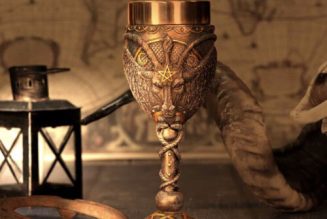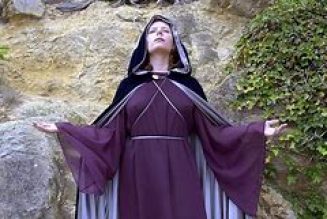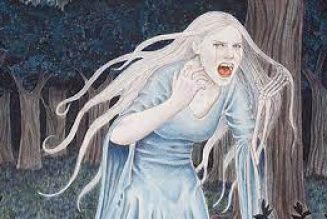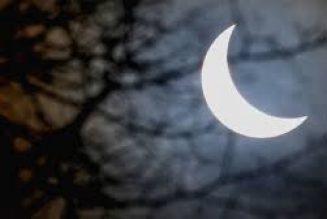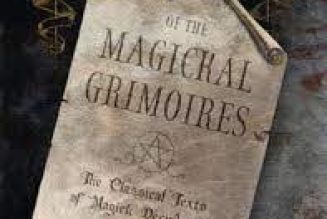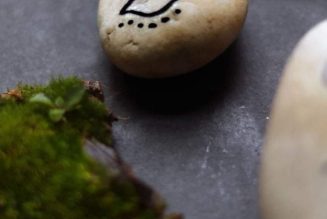By February, most of us are tired of the cold, snowy season. Imbolc
reminds us that spring is coming soon, and that we only have a few more
weeks of winter to go. The sun gets a little brighter, the earth gets a little
warmer, and we know that life is quickening within the soil. There are a
number of different ways to celebrate this Sabbat.
Rituals and Ceremonies
Depending on your particular tradition, there are many different ways
you can celebrate Imbolc. Some people focus on the Celticgoddess
Brighid, in her many aspects as a deity of fire and fertility. Others aim
their rituals more towards the cycles of the season, and agricultural
markers. Here are a few rituals you may want to think about trying —
and remember, any of them can be adapted for either a solitary
practitioner or a small group, with just a little planning ahead.
Hundreds of years ago, when our ancestors relied upon the sun as their
only source of light, the end of winter was met with much celebration.
Although it is still cold in February, often the sun shines brightly above
us, and the skies are often crisp and clear. As a festival of light, Imbolc
came to be called Candlemas. On this evening, when the sun has set once
more, call it back by lighting the seven candles of this ritual.
The seven candles in this ritual represent various aspects of both the
seasons and the human existence. Several symbolize the light that
emerges as winter finally comes to an end, and another represents the
purifying warmth of the hearth fires. One candle is symbolic of the
barrier between the positive and negative in your life; a boundary of sorts
between our world and the next. Another stands in for the magic of
wisdom and inspiration, and for the light that comes into our lives when
we experience love.
If you’re a solitary practitioner, don’t worry! This is a ritual you can
perform all by yourself. Although this ceremony is written for one, it can
easily be adapted for a small group by assigning each participant their
own candle, or candles, to light and take charge of.
First, set up your altar in a way that makes you happy, and brings to
mind the themes of Imbolc – rebirth and renewal, purification and
cleansing.
Prior to beginning your ritual, take a warm, cleansing bath. While
soaking, meditate on the concept of purification. Once you’re done, dress
in your ritual attire, if you normally wear it, and begin the rite. You’ll
need:
• Seven candles, in red and white (tealights are perfect for this)
• Something to light your candles with
• A large bowl or cauldron big enough to hold the candles
• Sand or salt to fill the bottom of the bowl/cauldron
If your tradition requires you to cast a circle, do so now. Pour the sand or
salt into the bowl or cauldron. Place the seven candles into the sand so
they won’t slide around. Light the first candle. As you do so, say:
Although it is now dark, I come seeking light.
In the chill of winter, I come seeking life.
Light the second candle, saying:
I call upon fire, that melts the snow and warms the hearth.
I call upon fire, that brings the light and makes new life.
I call upon fire to purify me with your flames.
Light the third candle. Say:
This light is a boundary, between positive and negative.
That which is outside, shall stay without.
That which is inside, shall stay within.
Light the fourth candle. Say:
I call upon fire, that melts the snow and warms the hearth.
I call upon fire, that brings the light and makes new life.
I call upon fire to purify me with your flames.
Light the fifth candle, saying:
Like fire, light and love will always grow.
Like fire, wisdom and inspiration will always grow.
Light the sixth candle, and say:
I call upon fire, that melts the snow and warms the hearth.
I call upon fire, that brings the light and makes new life.
I call upon fire to purify me with your flames.
Finally, light the last candle. As you do so, visualize the seven flames
coming together as one. As the light builds, see the energy growing in a
purifying glow.
Fire of the hearth, blaze of the sun,
cover me in your shining light.
I am awash in your glow,and tonight I am
made pure.
Take a few moments and meditate on the light of your candles. Think
about this Sabbat, a time of healing and inspiration and purification. Do
you have something damaged that needs to be healed? Are you feeling
stagnant, for lack of inspiration? Is there some part of your life that feels
toxic or tainted? Visualize the light as a warm, enveloping energy that
wraps itself around you, healing your ailments, igniting the spark of
creativity, and purifying that which is damaged.
When you are ready, end the ritual. You may choose to follow up with
healing magic, or with a Cakes and Ale ceremony.
If you’re looking for prayers or blessings to celebrate the sabbat of Imbolc,
here’s where you’ll find a selection of original devotionals that bid farewell
to the winter months and honor the goddess Brighid, as well as seasonal
blessings for your meals, hearth, and home. Feel free to adjust or modify
these prayers as you need to, in order to fit the themes of your own
magical tradition and beliefs.
Prayers for Imbolc
Brighid’s Fire Meal Blessing
Thegoddess Brighid is well known as a keeper of the hearth fires in the
home. As such, she is often associated with matters of domesticity,
includingcooking and kitchen magic. If you’re prepped a meal and you’re
getting ready to dig in, take a moment to bless your food in Brighid’s
name.
Brighid is the lady of flame,
the fire that cooks our food!
Hail to her and to the hearth,
and may our meal be good!
Thanks to Brighid Meal Blessing
In some modern Pagan traditions, it is customary to offer a blessing
before a meal, particularly if it’s being held in a ritual context. At Imbolc,
it’s a season to honor Brighid, the goddess of hearth, home and
domesticity. Celebrate her role as a goddessof the homefires, and offer
this simpleblessing of gratitudebefore your Imbolc feast.
This is the season of Brighid,
She who protects our hearth and home.
We honor her and thank her,
for keeping us warm as we eat this meal.
Great Lady, bless us and this food,
and protect us in your name.
Prayer to Brighid, Bride of Earth
In many modern Pagan traditions, the Imbolc sabbat is a time to
celebrate Brighid, the Celtic hearth goddess. Among her many other
aspects, she is known as the Bride of Earth, and is the patroness of
domesticity and home. This simple prayer honors her in that role.
Bride of the earth,
sister of the faeries,
daughter of the Tuatha de Danaan,
keeper of the eternal flame.
In autumn, the nights began to lengthen,
and the days grew shorter,
as the earth went to sleep.
Now, Brighid stokes her fire,
burning flames in the hearth,
bringing light back to us once more.
Winter is brief, but life is forever.
Brighid makes it so.
Smooring the Fire – A Prayer to Brighid
Alexander Carmichael was a folklorist and author who spent nearly five
decades traveling around the highlands of Scotland collecting stories,
prayers and songs. His most noteworthy work, the Carmina Gadelica, is
an interesting blend of early Pagan tradition .Smooring the Fire is from
Carmichael’s Carmina Gadelica, published 1900, and is a Gaelic hymn to
Brighid, honoring the tradition of smooring, or dampening, the hearth
fire at night, and particularly on the night before Imbolc.
An Tri numh (The sacred Three)
A chumhnadh, (To save,)
A chomhnadh, (To shield,)
A chomraig (To surround)
An tula, (the hearth)
An taighe, (The house,)
An teaghlaich, (The household,)
An oidhche, (This eve,)
An nochd, (This night,)
O! an oidhche, (Oh! this eve,)
An nochd, (This night,)
Agus gach oidhche, (And every night,)
Gach aon oidhche. (Each single night.)
End of Winter Meal Blessing
Although Imbolc isn’t truly the end of winter–and depending on where
you live, you might be right smack in the middle of the worst weather of
the season–in many traditions, it is a time to look forward towards the
spring. It’s a good time to honor the idea that the days are starting to
grow a little bit longer and that soon, the harsh cold winter will be
coming to an end. Feel free to hold off on this prayer until it’s a little more
seasonally appropriate for your area.
The winter is coming to an end
The stores of food are dwindling,
And yet we eat, and stay warm
In the chilled winter months.
We are grateful for our good fortune,
And for the food before us.
Prayer to Brigantia, Keeper of the Forge
Thegoddess Brighid was known by many names. In parts of northern
Britain, she was called Brigantia, and was seen as a keeper of the forge. In
this aspect, she is associated with smithcraft and cauldrons. She was
connected to the Roman goddess Victoria, a deity who was the
personification of victory in battle, as well as loyalty. In some legends she
is invoked as Minerva, the warrior goddess. Although as Brigantia she is
not nearly as famous as her Brighid aspect, she is seen as the goddess who
bestowed the title of Brigantes upon a pan-Celtic tribe in England’s
border region.
Hail, Brigantia! Keeper of the forge,
she who shapes the world itself with fire,
she who ignites the spark of passion in the poets,
she who leads the clans with a warrior’s cry,
she who is the bride of the islands,
and who leads the fight of freedom.
Hail, Brigantia! Defender of kin and hearth,
she who inspires the bards to sing,
she who drives the smith to raise his hammer,
she who is a fire sweeping across the land.
Prayer to Brighid, Keeper of the Flame
Among her many other aspects, Brighid is the keeper of the flame, and
this simple prayer honors her in that role.
Mighty Brighid, keeper of the flame,
blazing in the darkness of winter.
O goddess, we honor you, bringer of light,
healer, exalted one.
Bless us now, hearth mother,
that we may be as fruitful as the soil itself,
and our lives abundant and fertile.
